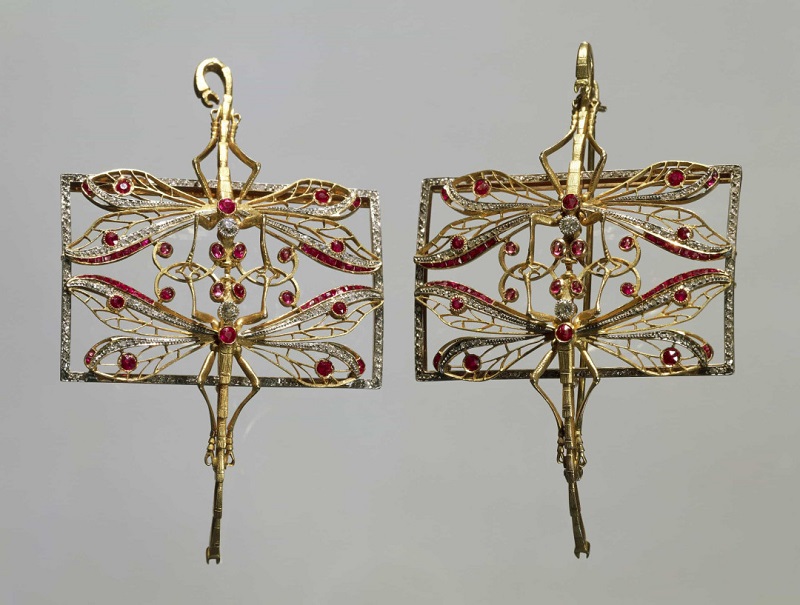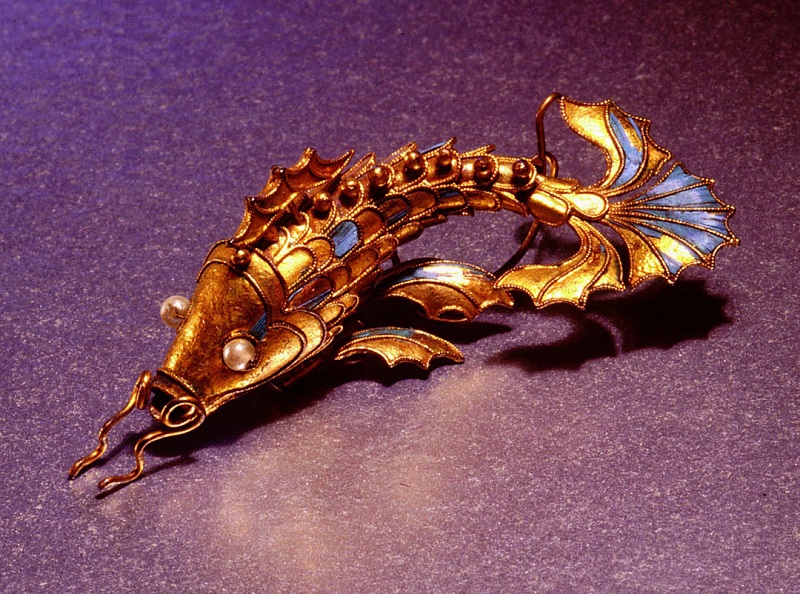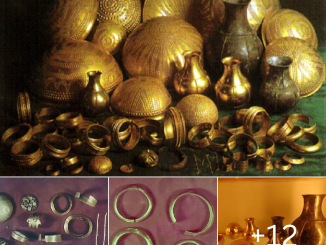The amazing world of wildlife has inspired jewelers since ancient times. Frogs, birds, insects or amphibians have appeared as motifs on many rings, bracelets, pendants and other pieces of jewelry over the centuries and still do so today.
Frog
Originating from the Chiriquí province in Costa Rica, this gold-cast frog pendant dates to around the 11th century. Frogs are frequently depicted in the gold work of Costa Rica and Panama. There are many species in this area and may have provided inspiration for local artisans.
René Lalique (1860–1945) was responsible for creating some of the world’s most iconic jewelry. This exquisite brooch known as the Dragonfly Woman is one of his finest, made in 1897–1898 and is a masterpiece of the Art Nouveau period.
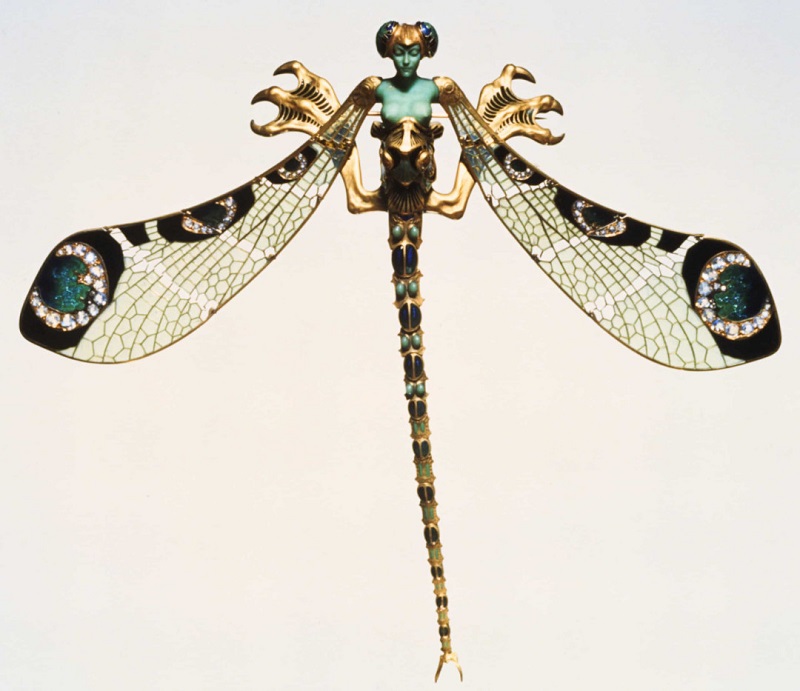
The delicate dragonfly with transparent wings is one of the jeweler’s favorite insects. Imagine how much effort it took to create this pair of early 20th century gold brooches studded with rubies and diamonds.
Solid gold bracelets in the shape of snakes were among the most popular objects in ancient Greek and Roman jewelry. This example of a Roman snake dates from the 1st century CE.
Another more complex product from Egypt, the bracelet below features a two-headed snake. Bracelets like these are often worn in pairs, on the wrist or on the arm. Snakes symbolize fertility and are meant to ward off evil.
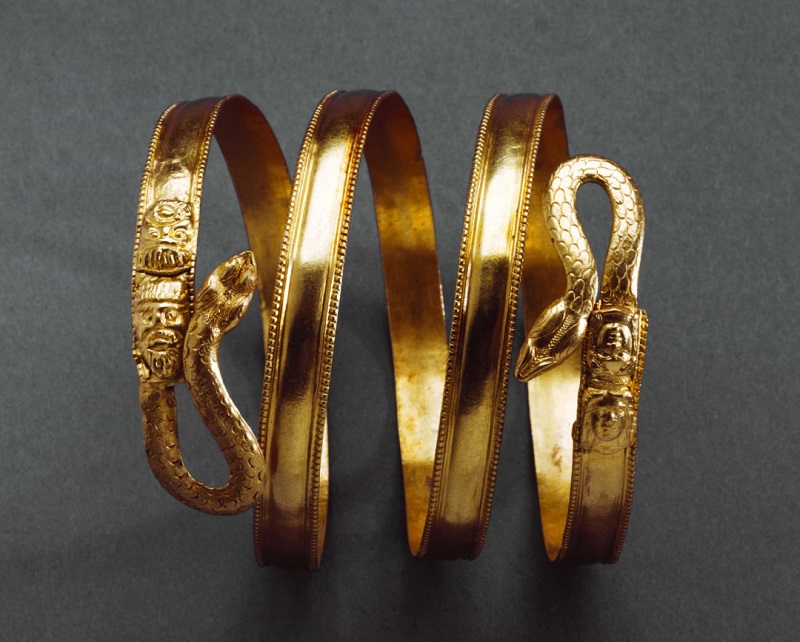
Italian luxury brand Bulgari produced this beautiful teardrop-cut emerald and snake ring in 1995, influenced by a 3,000-year-old design.
The jeweler who created this silver-plated fish used real kingfisher feathers and pearls for the eyes. The work is mounted on a hairpin and is of Chinese origin, made in 1820 during the Qing Dynasty (1644–1911), the last dynasty in China’s imperial history.
To be continued

